What Is Cannabis Pollen And How To Use It
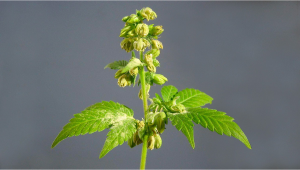
- 1. Male cannabis plants
- 2. What is pollen?
- 3. What is pollen used for?
- 4. How to collect and store pollen?
- 5. How to use pollen?
- 6. Why you should collect pollen
- 7. Can you pollinate autoflowering cannabis strains?
- 8. Cannabis pollen faqs
- 9. In conclusion
Just like female cannabis plants, male plants also flower but they don’t produce buds. Male cannabis plants develop pollen sacs that release pollen when they reach maturity. Male plants are vital in the production of new cannabis seeds but can be a nightmare for home growers because they can pollinate your female plants, filling the buds with seeds. If you’ve ever grown cannabis before, you’ll be well aware that the plant is dioecious—that is, the male and female flowers occur on completely separate plants. As far as the plant kingdom goes, this fact makes cannabis rather unique; around 95% of plants contain both male and female reproductive structures on the same specimen. It helps to know this as a cannabis grower. Why? Because it means your female plants are incapable of fertilizing themselves (unless they start to develop male reproductive parts as a response to genetic factors to environmental stressors). If you plan on breeding weed, then you’ll need both male and female plants in your offspring to obtain seeds. If, however, you want nothing but dank buts, you’ll need to keep male plants well away from your growing space to achieve the strongest and most resinous inflorescence possible.
1. Male Cannabis Plants
Plants can be Monoecious or Dioecious. Dioecious plants are those which have distinct female and male plants, meaning a plant will be male or female and the male needs to pollinate the female to produce seeds. Monoecious plants are those which have both female and male parts and are known as hermaphrodites. The cannabis plants can be both Monoecious and Dioecious, although it is mostly found with separate sexes, you can and you will see Monoecious cannabis (hermaphrodites) in nature and even in your growing space. Hermaphrodites happen when the cannabis plant gets stressed. If she senses death is near, she will start developing the other sex to guarantee the survival of her species. This allows her to pollinate itself, producing seeds without the need for another plant.
Ultimately, male cannabis plants are those that inherit XY sex chromosomes from their parents. This genetic foundation codes for plants that express male flowers. These appear at the nodes (the point at which branches meet the main stem) as small spherical balls—as opposed to the teardrop-shaped female pre-flowers. Instead of developing into large buds spattered with trichomes and stigmas, these balls simply swell to the point that they open up and disperse pollen. Male plants are commercially viable simply for the fact that they produce pollen that's able to fertilize female plants in the context of breeding. Outside of this function, their lack of trichomes, cannabinoids, and terpenes makes them undesirable for most growers.
2. What Is Pollen?
As you may know, buds are the flowers of the female cannabis plant. Male plants also flower, but unlike female plants, they produce pollen sacs. Pollen sacs are small balls that open up when they’re fully mature, releasing pollen.
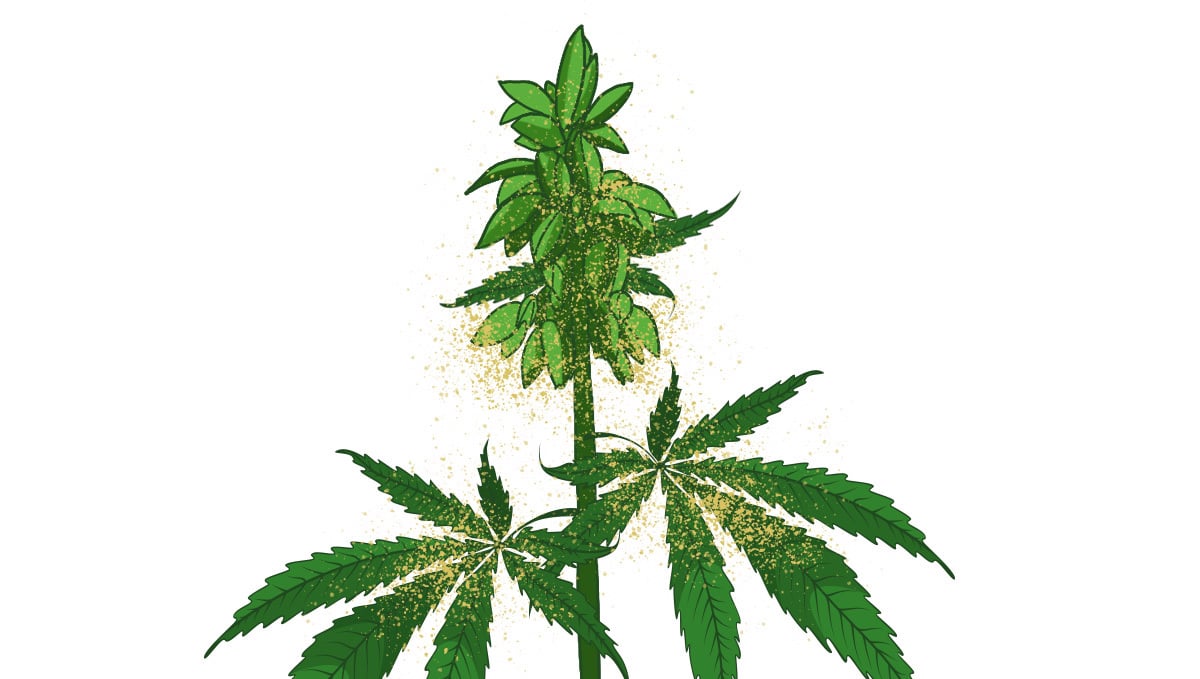
The tiny pollen grains hold the male plant’s DNA information which combines with the female gametes that contain its DNA information, resulting in cannabis seeds. Pollen is produced by male cannabis plants and contains the male gametes. To produce seeds, a male plant needs to pollinate a female plant. This is how breeders produce new genetics, this way new terpene profiles and types of high can be achieved. Cannabis pollen will usually have a powdery-like appearance, and a consistency finer than sand. It will most often have a yellow or gray color and can be tricky to harvest without accidentally contaminating any nearby female plants.
3. What Is Pollen Used For?
Pollen is used to create seeds. In nature, pollen allows cannabis plants to perpetuate their species. For breeders, this allows the creation of new strains. By crossing two different strains, breeders can come up with distinct and unique colors, flavors, and aromas.
For example, our new Gorilla Cookies Auto is a cross between our Gorilla Glue Auto and Girl Scout Cookies Auto. This is achieved by collecting the pollen from one strain and pollinating the buds of the other one.
4. How To Collect And Store Pollen?
Collecting pollen isn’t too hard but you will need to be careful, it is super light and the slightest breeze can spread it all over, it can also stick to your hands, clothing, and hair, so you should be super cautious if you have female plants around.
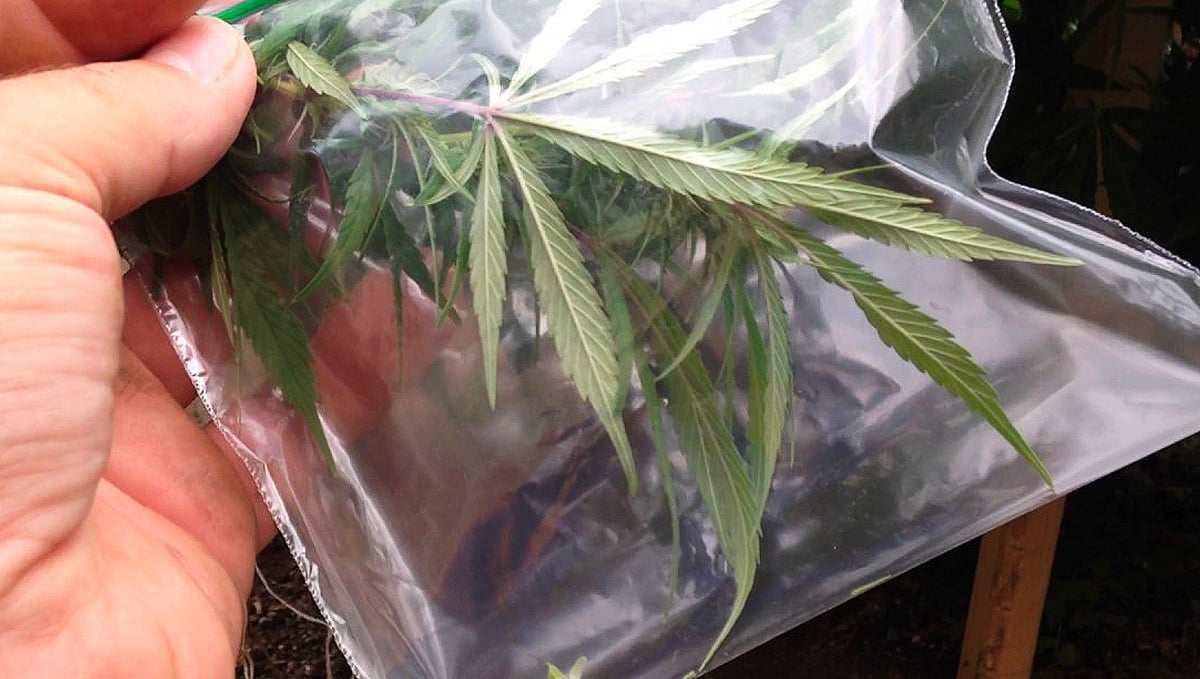
The best way to collect it is to check every day and be aware of when the male flowers are reaching maturity. When they’re about to open you should have a ziplock bag, a container, or any other way to hold it without it being able to get away. Have in mind that pollen is extremely sensitive to light and moisture so you should keep it in a dry cool place, if you’re gonna store it for more than just a few weeks, keep it in the refrigerator. A good tip is to use silica gel sachets to make sure the pollen is kept dry.
If you are planning to use the pollen straight away, it's best to take the whole flowering head and shake it over a fine mesh filter with some baking or parchment paper underneath. Once it has been harvested, let the pollen sit in a dry, shaded, warm area for 1 to 2 days to let it release all moisture.
| Pollen Viability | |
|---|---|
| Conditions | Can be stored for |
| Room temperature | 1 - 3 weeks |
| Fridge | 2 - 3 months |
| Freezer | Up to 12 months |
Remember that this table is just a guideline. As mentioned, you should try to remove the moisture from the cannabis pollen before storing it, if you fail to do so, the cannabis pollen may not last as long as the periods mentioned in the table because moisture can attract mold and end up ruining the cannabis pollen. Also, pollen doesn’t have a protective layer so it’s exposed directly to the conditions, so in order to last up to 12 months in the freezer, for example, you should mix the pollen with regular flour or place a silica gel pack while keeping it in a dark airtight container, this will maximize storage life.
A study conducted at the University of Lethbridge, Alberta found that by mixing the collected pollen (that had all moisture removed) with baked whole wheat flour and preserving agents, and then freezing it in liquid nitrogen the pollen would stay viable for “4 months, suggesting potentially indefinite preservation of cannabis pollen.” This could have huge implications in the world of cannabis genetics, as there has long been an issue with keeping genetic linages strong and stable over long periods. They also concluded that the best time to collect pollen was in the 4th or 5th week of the flowering cycle. Remember, do not refreeze pollen. Only take it out of the freezer when you are sure you are ready to use it, as temp swings will reduce the viability of the pollen
5. How To Use Pollen?
Pollinating your female plants is super easy, you just need to get the pollen to stick onto the buds, either by shaking the male plant, spreading pollen all over, or by carefully applying the stored pollen on the buds with a brush. It really is that easy. However, most cannabis growers appreciate more than the basics. Growers often start off as hobbyists and, before long, find that they’ve developed a rather deep fascination with botany, plant physiology, and genetics. So, let’s dive into the act of pollination with a bit more depth. Most novice cannabis growers make the mistake of labelling buds as cannabis flowers—this isn’t true. Buds are in fact large clumps of true pistillate cannabis flowers. Because they contain flowers, leaves, and branches, cannabis buds are actually known to botanists as inflorescences.
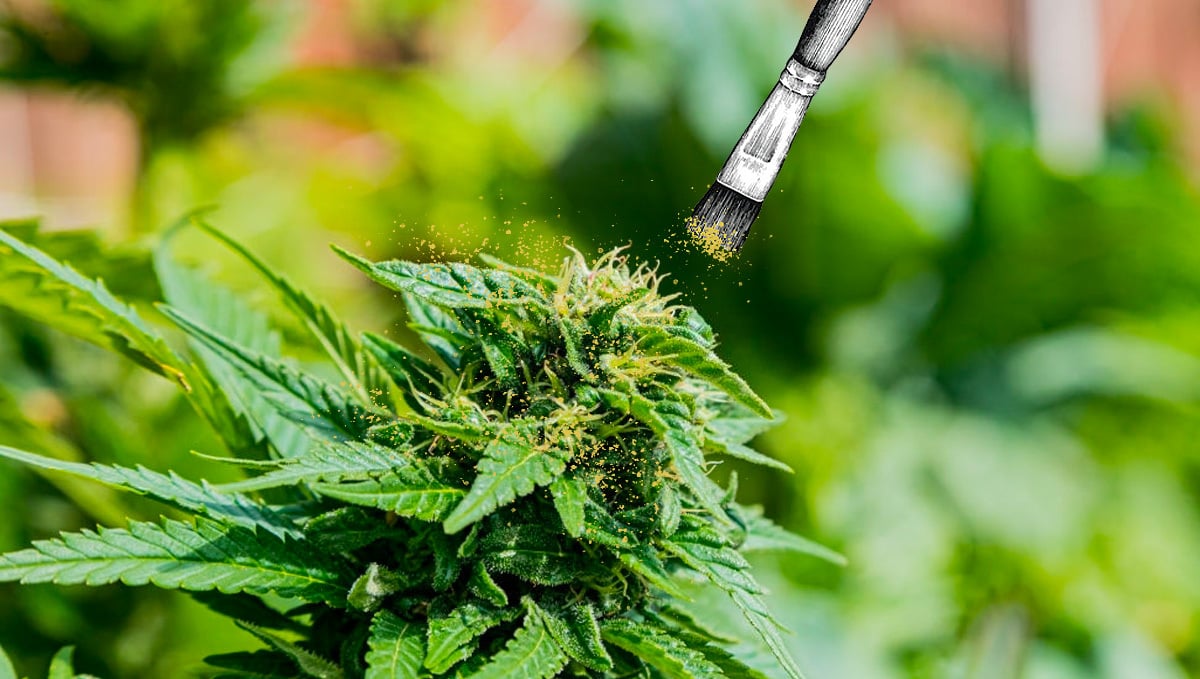
If you take a closer look at a bud, you’ll notice many small tendril-like structures emerging from the surface; these hairs are typically white during early flowering and turn dark orange towards the end of bloom. Well, each individual flower within the clump possesses two of these hairs, known as stigmata. Each of these hairs possesses even smaller hairs, known as stigmatic papillae, on their surface. These are designed to catch pollen floating around in the air. Once the pollen makes contact with the stigma, the hair-like structure carries genetic material down into the leafy bract below. Within this vegetative shell sits the ovule—the equivalent of an animal’s ovary. Once fertilized, this reproductive structure turns into a seed within the protective casing of the bract. Just remember that to produce good seeds you need to pollinate when the pistils are fully formed, which is around 3-5 weeks into the flowering stage.
6. Why You Should Collect Pollen
There are a few key reasons why a cannabis cultivator might want to collect pollen, but the main reason for creating new strains from their own crop. Sure, you could keep a mother plant going for an almost indefinite amount of time, but this requires a ton of care and resources. Collecting pollen can take a heap of that hassle out of the equation, and it is also much more versatile. The pollen from a single male plant can be used to germinate any single strain you grow, whereas with a mother plant you are locked into her genetics and have to find the pollen from a range of male plants.
In this day and age of cannabis legality, it is possible to source high-grade pollen from reputable sources in certain regions of the world, it is hard to know exactly what genetic traits you are getting. This pollen can also be quite expensive. If you are passionate about cannabis cultivation and want to try and start breeding your very own strains. Then we recommend trying to harvest your own pollen - it's cheaper, easier, and way more fun than simply buying it.
7. Can You Pollinate Autoflowering Cannabis Strains?
Yes, without a doubt you can pollinate female autoflowering strains. Maybe a better question is will these seeds be autoflowering? That really depends on the genetics of the father plant. If it is a photoperiod plant, then you will have to continue with cross-breeding the offspring of these two plants for a few generations before you produce higher than 50% autoflowering seeds. If you are keen on getting your hands on the very best autoflowering seeds available right now, head over to our catalog to see our whole range. FastBuds seeds regularly take out the top prizes at worldwide cannabis cup events, and we are one of the oldest autoflowering seedbanks in the world! Our top picks right now are Gorilla Punch Auto, Strawberry Gorilla Auto, and Bruce Banner Auto. If a CBD-heavy flower is more your thing then check out CBD Auto 20:1, or CBD Auto 1:1 (CBD Crack).
8. Cannabis Pollen FAQs
-
For how long is cannabis pollen viable?
In normal conditions, marijuana pollen is viable for one to three weeks after it has been collected from the cannabis pollen sacs. However, if you seal it and freeze it it can last up to a year. This happens because pollen doesn’t have a protective layer like seeds, for example, so make sure you check the cannabis pollen storage topic above and store your marijuana pollen correctly. Also, if you freeze it, make sure you only remove it from the freezer once you’re ready to use it because temperature fluctuations and moisture will ruin the pollen.
-
How long until cannabis plants produce pollen?
Your male plants need to mature sexually in order to start developing the pollen sacs but they usually mature one to two weeks before female plants. This means that you’ll have to wait at least four to six weeks before your plant matures sexually and then around two to three weeks for the pollen sacs to finish developing and release the marijuana pollen. Obviously, it depends from strain to strain so it can take a bit longer but in most cases, it can take a minimum of six to seven weeks (from seed) for your plant to produce and release marijuana pollen.
-
Is male pollen the same as hash pollen?
No, despite both being called pollen, hash pollen is slang for kief. Kief is made by sifting cannabis trichomes from female plants with a fine screen which can then be pressed into hash or consumed in pollen form while male cannabis pollen is the male gametes that are produced inside the male pollen sacs which are then used to produce seeds and cannot be consumed.
9. In Conclusion
Even though they’re not so popular nowadays, male cannabis plants are essential to perpetuate the cannabis plant, for the creation of new strains and the discovery of new combinations of terpenes. Although home growers won’t usually cultivate male plants, they’re extremely important for cannabis in general. Despite being laborious, collecting cannabis pollen from male plants is the best way to make your own seeds.
You can also revert a female cannabis plant’s sex but breeders claim that the offspring will have a tendency to turn hermaphrodite so, if you want to experiment with making your own crosses or just want to stock cannabis seeds for your next grow cycles, it’s highly recommended that you do it by crossing a male and female plant. Also, make sure you store the pollen correctly because pollen starts degrading as soon as you take it off the pollen sacs, so use it as soon as you can to increase the chances of success.
If you are more experienced with male cannabis plants, feel free to share your knowledge with fellow growers by leaving a comment in the comment section below!








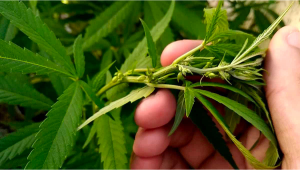
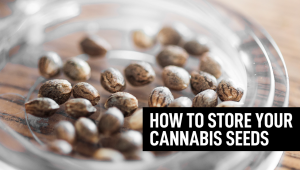

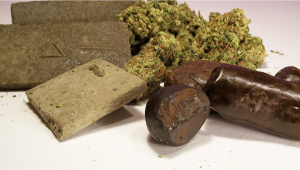


Comments